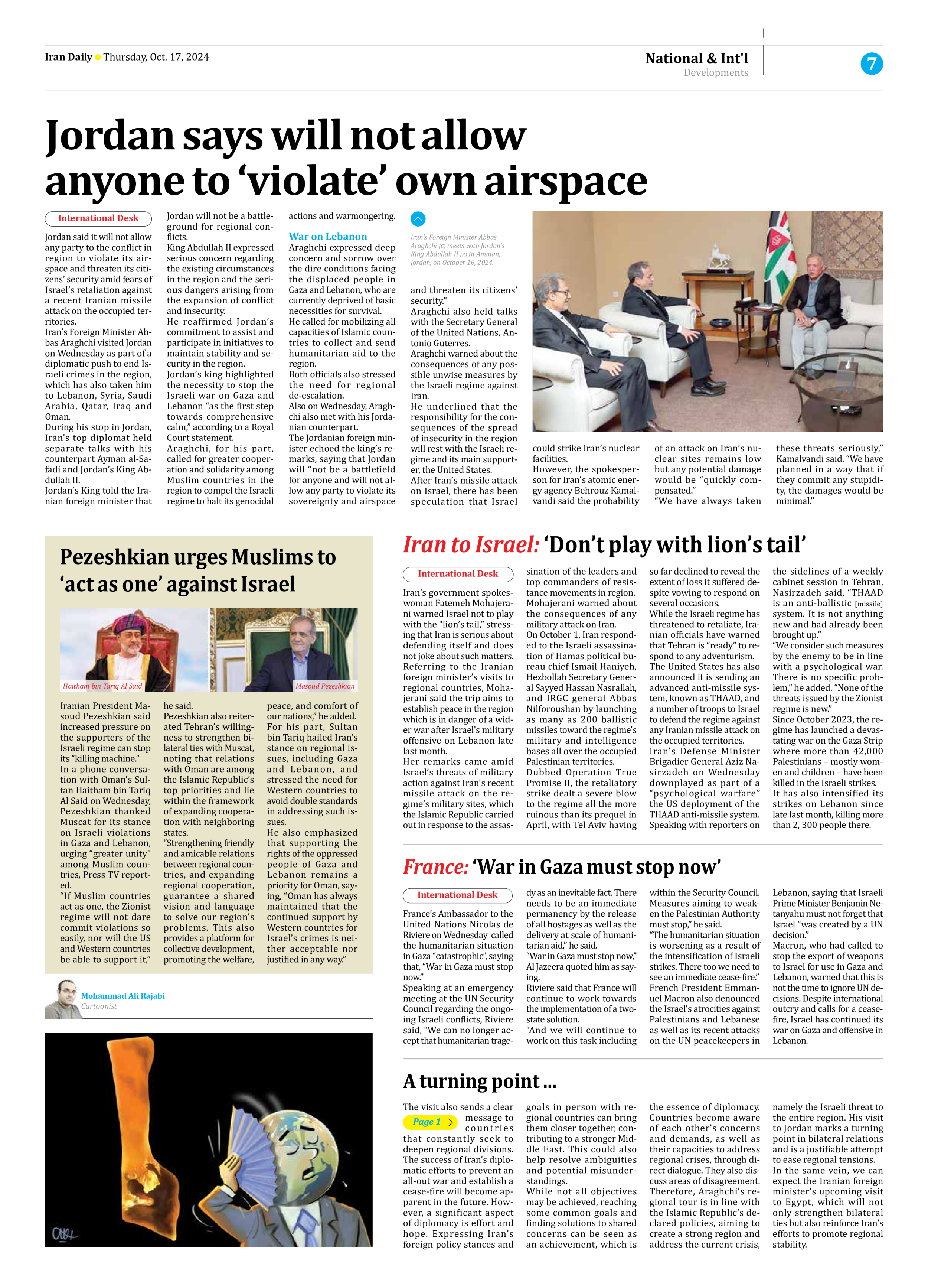
Jordan says will not allow anyone to ‘violate’ own airspace
Jordan said it will not allow any party to the conflict in region to violate its airspace and threaten its citizens’ security amid fears of Israel’s retaliation against a recent Iranian missile attack on the occupied territories.
Iran’s Foreign Minister Abbas Araghchi visited Jordan on Wednesday as part of a diplomatic push to end Israeli crimes in the region, which has also taken him to Lebanon, Syria, Saudi Arabia, Qatar, Iraq and Oman.
During his stop in Jordan, Iran’s top diplomat held separate talks with his counterpart Ayman al-Safadi and Jordan’s King Abdullah II.
Jordan’s King told the Iranian foreign minister that Jordan will not be a battleground for regional conflicts.
King Abdullah II expressed serious concern regarding the existing circumstances in the region and the serious dangers arising from the expansion of conflict and insecurity.
He reaffirmed Jordan’s commitment to assist and participate in initiatives to maintain stability and security in the region.
Jordan’s king highlighted the necessity to stop the Israeli war on Gaza and Lebanon “as the first step towards comprehensive calm,” according to a Royal Court statement.
Araghchi, for his part, called for greater cooperation and solidarity among Muslim countries in the region to compel the Israeli regime to halt its genocidal actions and warmongering.
War on Lebanon
Araghchi expressed deep concern and sorrow over the dire conditions facing the displaced people in Gaza and Lebanon, who are currently deprived of basic necessities for survival.
He called for mobilizing all capacities of Islamic countries to collect and send humanitarian aid to the region.
Both officials also stressed the need for regional de-escalation.
Also on Wednesday, Araghchi also met with his Jordanian counterpart.
The Jordanian foreign minister echoed the king’s remarks, saying that Jordan will “not be a battlefield for anyone and will not allow any party to violate its sovereignty and airspace and threaten its citizens’ security.”
Araghchi also held talks with the Secretary General of the United Nations, Antonio Guterres.
Araghchi warned about the consequences of any possible unwise measures by the Israeli regime against Iran.
He underlined that the responsibility for the consequences of the spread of insecurity in the region will rest with the Israeli regime and its main supporter, the United States.
After Iran’s missile attack on Israel, there has been speculation that Israel could strike Iran’s nuclear facilities.
However, the spokesperson for Iran’s atomic energy agency Behrouz Kamalvandi said the probability of an attack on Iran’s nuclear sites remains low but any potential damage would be “quickly compensated.”
“We have always taken these threats seriously,” Kamalvandi said. “We have planned in a way that if they commit any stupidity, the damages would be minimal.”







